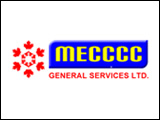“It’s time to restart the economy” is a phrase frequently used these days. We all understand what is meant. Some of us agree with the sentiment, others disagree, but I suggest that the phrase represents a careless use of words. The economy is simply the way goods and services get distributed. The economy always functions, goods and services always get distributed. The way goods and services get distributed can change. One way be more equitable than another, one way may appeal to me more than another, but the economy is always functioning.
The current pandemic has greatly altered the way goods and services are distributed. For purposes of this discussion, it may be useful to separate goods and services. Our government and our society has deemed that many of the services we have been taking for granted are non-essential – hair dressing, eating out, retail sales, and even dentistry. In another category, yet still services, has been travel, most notably air travel and holidays. These services have been shut down by government and/or we have avoided them. We’ve managed OK without them. We may not have liked it, but it’s been OK.
But it’s been OK only because our government has stepped in and provided an income to those people who lost an income because they’ve had to discontinue their services. People who made a living providing services to others lost their income because we no longer wanted their services. Nevertheless they could still purchase their essential goods like food and shelter because government provided the necessary funds. Had government not done so, it would not have been OK.
Prior to the pandemic, it was the market that more or less determined how goods and services were distributed, but with the pandemic, that changed. Suddenly government has become a major actor in this distribution.
As we are now giving increasing thought to the economy we will have post pandemic, it would be good if we could look at our options critically and discuss the kind of economy we want. For example, Air Canada is projecting that the volume of its business will be 25% of what it has been. Is that necessarily a bad thing? No doubt the Air Canada employees who will lose their job, there will be tough adjustments. That will not be easy. But we do well to remember that every flight contributes significantly to climate change and depletes the earth of scarce nonrenewable fuel. We all, and more significantly future generations are better off if the aircraft remains on the ground.
Conventional wisdom says that these planes need to get flying again, with all seats filled. In this way Air Canada again makes a profit, and the employees all have work. But is that really the only way? What if these employees continue to get paid but the aircraft doesn’t fly. It seems to me we are better off with the no flight scenario because these people are still supported, but the air pollution does not occur.
The mechanism for how we support Air Canada and its employees in the absence of filling those seats is not clear, but it seems to me we need to find such a mechanism.
Ecological economists have coined a new word ‘illth’. Illth is economic activity that results in the opposite of wealth. The standard example of this is an oil spill. An oil spill results in lots of economic activity, lots of jobs, but the result is not wealth. The result is illth. What other activities that we consider normal, in fact result in illth?
This pandemic is urging us to examine that.



